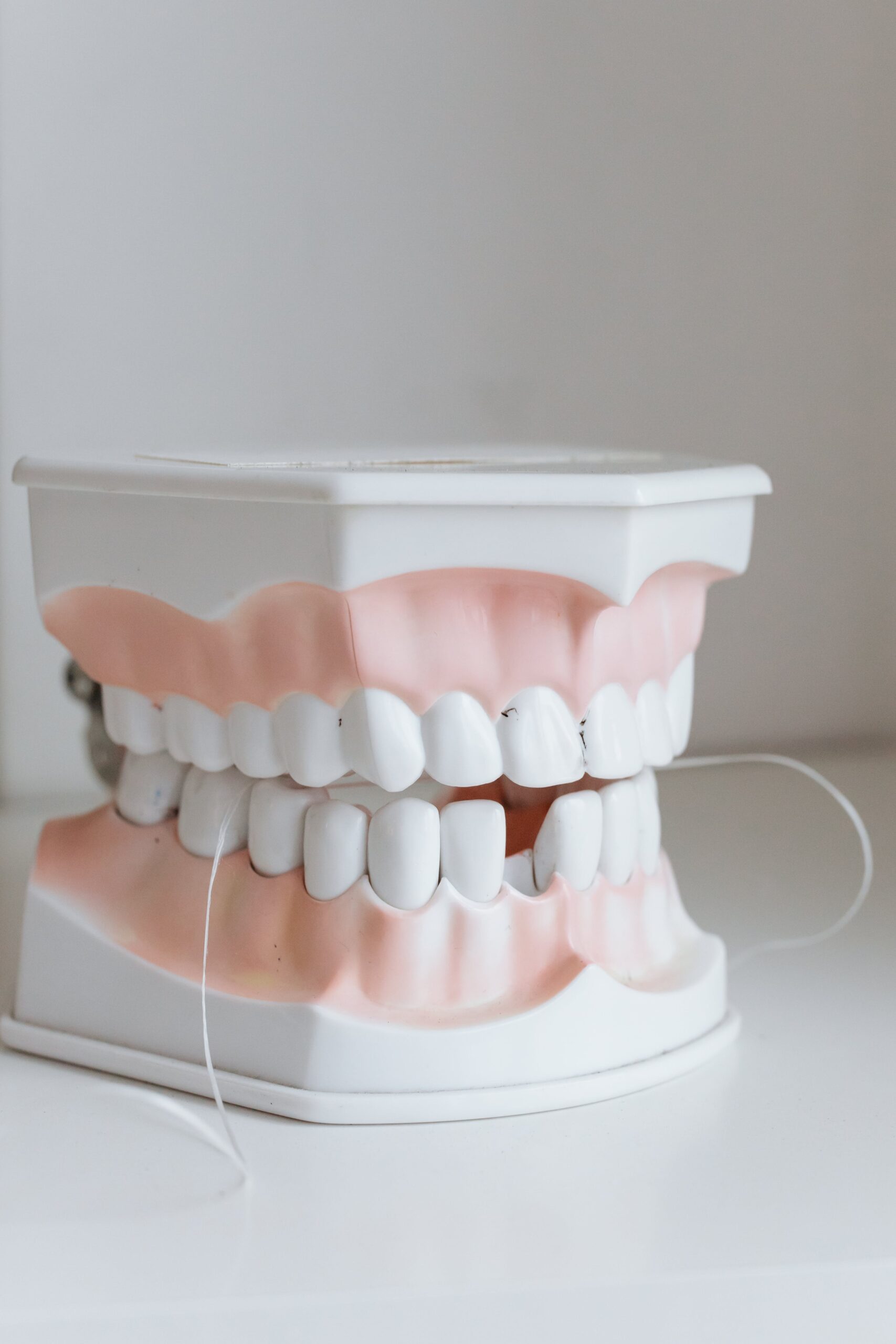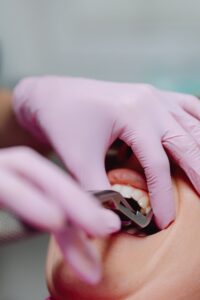
I. Introduction
Dental health plays an integral role in our overall well-being, and hence its understanding cannot be overstated. Among the various dental procedures, tooth extraction is one of the most common yet misunderstood ones.
From fears of unbearable pain to ostensible vision problems, there are many myths and misconceptions that revolve around this procedure. This has led to unnecessary anxieties and misinformed decisions.
The objective of this article is to illuminate the facts about tooth extraction, dispel the popular myths surrounding it, and highlight the importance of open communication with dental professionals.
II. Myth 1: Tooth Extraction is Excruciatingly Painful
The myth that tooth extraction is extremely painful probably has its roots in the days before advanced anesthetics and dental procedures. However, contemporary dentistry has come a long way to ensure virtually painless procedures. It provides a variety of effective pain management techniques such as local anesthesia, sedation dentistry, and gentle extraction processes. Patients from varied age groups have reported minimal to no pain during the process, reinforcing the effectiveness of modern-day dental techniques.
III. Myth 2: Tooth Extraction leads to Vision Problems
The idea that oral health and vision are interconnected is not entirely baseless, but the myth that tooth extraction can create vision problems is disconnected from scientific reality. A few isolated instances of vision changes post tooth extraction might have led to the propagation of this myth, however, they have usually been attributed to other underlying health conditions rather than the dental procedure itself. Medical studies until now provide little to no evidence to substantiate a direct cause-effect relationship between tooth extraction and vision impairment.
IV. Myth 3: Every Wisdom Tooth Needs to be Extracted
This myth possibly originates from the commonality of wisdom tooth extraction, leading many to believe it to be a necessary rite of passage into adulthood. The fact, however, is that the extraction becomes necessary only when problems such as impaction, pain, or infection occur due to the wisdom teeth. Dentists and oral surgeons recommend extraction based on individual evaluations, making it a need-based procedure rather than a universally mandated one.
V. Myth 4: Tooth Extraction Affects Memory
This myth appears to be a coalescence of facts and fiction. Undoubtedly, the brain is a complex organ, but attributing memory loss to a routine dental procedure is far-fetched. The human brain is not affected by tooth extraction. The causes of memory loss are varied and complex, usually linked to factors like age, trauma, and certain diseases, none of which are caused by tooth extraction. To date, there are no scientific research or studies that validate the claim of memory loss as a consequence of tooth extraction.
VI. Myth 5: Dry Socket is Inevitable After Tooth Extraction
Dry socket, or alveolar osteitis, is indeed a painful condition that can follow a tooth extraction. However, its reputation has been somewhat exaggerated, creating unnecessary fear and the misconception that it is an inevitable outcome of tooth extraction. In reality, dry socket occurs only in a minor percentage of cases. Following aftercare instructions provided by your dentist is crucial in significantly reducing the chances of developing dry socket. Simple measures, such as avoiding smoking, refraining from vigorous rinsing, and steering clear of spicy foods, can effectively minimize the risk of experiencing this uncomfortable condition. Adherence to post-extraction guidelines is key to a smoother and more comfortable recovery process.
In conclusion, knowledge is indeed empowering, and debunking myths about tooth extraction is a prime example of how understanding the facts can be reassuring for those undergoing or considering the procedure. The importance of scientific knowledge and fact-checking cannot be overstated. Depending solely on word-of-mouth advice or unverified internet information can lead to misconceptions, particularly in matters related to health.
Fostering open communication with dental professionals, asking questions, expressing concerns, and gaining a comprehensive understanding of the procedure are essential steps in mitigating fear and building confidence in dental healthcare. By relying on accurate information and engaging in open dialogue, individuals can make informed decisions about their oral health and dental procedures.
Our Reading dental clinic is committed to providing you with a beautiful smile every time you visit us. Whether you need tooth extraction or any other dental services, our team of highly trained dentists is here to provide you with the highest quality care. Our aim at Smiles in Reading is to give you a smile that is both comfortable and respectful. With online appointment scheduling, you can now receive dental care of the highest quality. Our dental professionals are here to help you enhance your smile and teeth.
Tooth Extraction Myths Debunked: Facts vs. Fiction
I. Introduction
Dental health plays an integral role in our overall well-being, and hence its understanding cannot be overstated. Among the various dental procedures, tooth extraction is one of the most common yet misunderstood ones.
From fears of unbearable pain to ostensible vision problems, there are many myths and misconceptions that revolve around this procedure. This has led to unnecessary anxieties and misinformed decisions.
The objective of this article is to illuminate the facts about tooth extraction, dispel the popular myths surrounding it, and highlight the importance of open communication with dental professionals.
II. Myth 1: Tooth Extraction is Excruciatingly Painful
The myth that tooth extraction is extremely painful probably has its roots in the days before advanced anesthetics and dental procedures. However, contemporary dentistry has come a long way to ensure virtually painless procedures. It provides a variety of effective pain management techniques such as local anesthesia, sedation dentistry, and gentle extraction processes. Patients from varied age groups have reported minimal to no pain during the process, reinforcing the effectiveness of modern-day dental techniques.
III. Myth 2: Tooth Extraction leads to Vision Problems
The idea that oral health and vision are interconnected is not entirely baseless, but the myth that tooth extraction can create vision problems is disconnected from scientific reality. A few isolated instances of vision changes post tooth extraction might have led to the propagation of this myth, however, they have usually been attributed to other underlying health conditions rather than the dental procedure itself. Medical studies until now provide little to no evidence to substantiate a direct cause-effect relationship between tooth extraction and vision impairment.
IV. Myth 3: Every Wisdom Tooth Needs to be Extracted
This myth possibly originates from the commonality of wisdom tooth extraction, leading many to believe it to be a necessary rite of passage into adulthood. The fact, however, is that the extraction becomes necessary only when problems such as impaction, pain, or infection occur due to the wisdom teeth. Dentists and oral surgeons recommend extraction based on individual evaluations, making it a need-based procedure rather than a universally mandated one.
V. Myth 4: Tooth Extraction Affects Memory
This myth appears to be a coalescence of facts and fiction. Undoubtedly, the brain is a complex organ, but attributing memory loss to a routine dental procedure is far-fetched. The human brain is not affected by tooth extraction. The causes of memory loss are varied and complex, usually linked to factors like age, trauma, and certain diseases, none of which are caused by tooth extraction. To date, there are no scientific research or studies that validate the claim of memory loss as a consequence of tooth extraction.
VI. Myth 5: Dry Socket is Inevitable After Tooth Extraction
Dry socket, or alveolar osteitis, is indeed a painful condition that can follow a tooth extraction. However, its reputation has been somewhat exaggerated, creating unnecessary fear and the misconception that it is an inevitable outcome of tooth extraction. In reality, dry socket occurs only in a minor percentage of cases. Following aftercare instructions provided by your dentist is crucial in significantly reducing the chances of developing dry socket. Simple measures, such as avoiding smoking, refraining from vigorous rinsing, and steering clear of spicy foods, can effectively minimize the risk of experiencing this uncomfortable condition. Adherence to post-extraction guidelines is key to a smoother and more comfortable recovery process.
In conclusion, knowledge is indeed empowering, and debunking myths about tooth extraction is a prime example of how understanding the facts can be reassuring for those undergoing or considering the procedure. The importance of scientific knowledge and fact-checking cannot be overstated. Depending solely on word-of-mouth advice or unverified internet information can lead to misconceptions, particularly in matters related to health.
Fostering open communication with dental professionals, asking questions, expressing concerns, and gaining a comprehensive understanding of the procedure are essential steps in mitigating fear and building confidence in dental healthcare. By relying on accurate information and engaging in open dialogue, individuals can make informed decisions about their oral health and dental procedures.
Our Reading dental clinic is committed to providing you with a beautiful smile every time you visit us. Whether you need tooth extraction or any other dental services, our team of highly trained dentists is here to provide you with the highest quality care. Our aim at Smiles in Reading is to give you a smile that is both comfortable and respectful. With online appointment scheduling, you can now receive dental care of the highest quality. Our dental professionals are here to help you enhance your smile and teeth.


